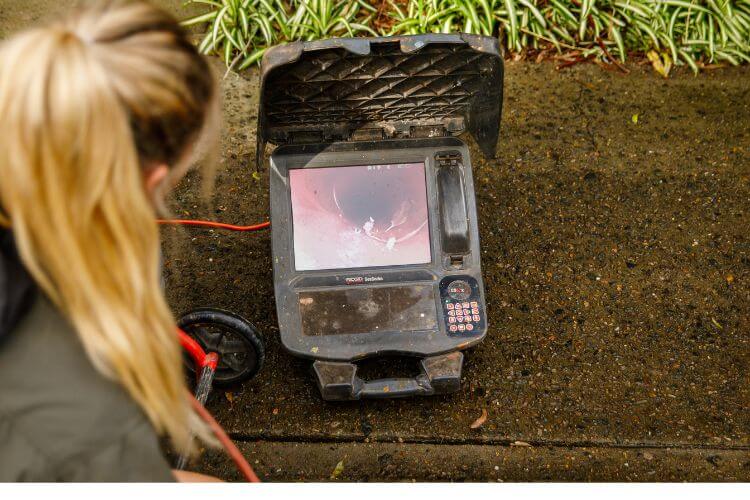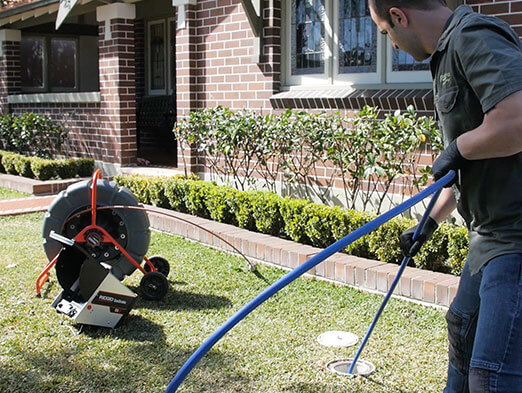Your garden is your happy place—a source of tranquillity, therapeutic escape, and a boost to your overall well-being, and even longevity.
However, to keep it (and you) thriving, your irrigation system needs to be in optimal condition. A well-maintained system ensures your plants get the perfect amount of water, saving you time, money, and effort.
Additionally, regular upkeep supports water conservation—good for the planet and your wallet. Most importantly, it keeps your plants looking good and feeling healthy all year round. In this guide, we’ll explore practical tips to keep your irrigation system running smoothly so your garden remains the sanctuary you love.
What is Garden Irrigation?
Garden irrigation is a system that delivers water directly to your plants without you having to physically water them yourself. It plays a crucial role in maintaining a thriving garden by providing consistent hydration, which is especially important during dry spells.
At the heart of irrigation systems are pipes laid throughout your garden, transporting water efficiently. Think of the pipes as the veins of your garden, ensuring water reaches every plant that needs it. As such, properly maintaining these pipes is key to avoiding leaks, blockages, or uneven water distribution to prevent underwatering or overwatering.
Why Maintenance of Garden Irrigation Matters
Neglecting the maintenance of your garden irrigation and sprinkler system can lead to costly and frustrating issues including leaks, clogged pipes, uneven water distribution and poor water flow.
Over time, these problems can waste water which in turn will increase your bills, not to mention leaving your garden struggling to thrive.
So, maintenance is key. It ensures your plants receive the right amount of water where and when they need it, promoting healthier growth and reducing the risk of disease caused by overwatering.
Regular upkeep also improves water efficiency, helping you conserve resources.
In short, proper maintenance of your entire irrigation system is essential for both the health of your plants, your wallet, and the sustainability of your garden.
Essential Garden Irrigation Maintenance Tips
To keep your garden irrigation system running smoothly, here are some handy maintenance tips:
- Regular inspection for leaks and clogs: Check pipes, hoses, and connections for signs of leaks or blockages that are disrupting the water flow.

- Clean emitters and nozzles: Remove debris or mineral build-up from drip emitters and sprinkler nozzles. This even maintains water distribution.
- Adjust watering schedules seasonally: Your system should not be a set-and-forget. Tailor your watering times to suit seasonal changes to ensure your plants get the right amount of water year-round.
- Ensuring proper water pressure: Monitor the system’s water pressure to avoid damage and ensure consistent watering across your garden.
- Replacing worn-out parts: Swap out aging seals, valves, or other components to prevent inefficiencies and extend the life of your irrigation system.
Troubleshooting Common Irrigation Issues
You might now be wondering how to address some of the above issues. Because even with regular maintenance, irrigation systems can face occasional hiccups. Let’s get into it.
Identifying and fixing leaks
Look for tell-tale signs such as soggy patches in your garden. Or even visible water dripping or spraying from pipes and connectors. You can DIY and tape over the hole in the pipe or, if necessary, replace damaged parts. If the leak is coming from a connection, then try tightening any loose connections to prevent water waste.
Dealing with uneven watering
Check emitters and sprinkler heads for clogs or misalignment. Cleaning or adjusting these components can restore even water coverage. You may need to replace a broken sprinkler head or even install a new irrigation system.
Preventing overwatering and water pooling
If you notice water pooling around plants, adjust your system’s watering schedule. Ensure emitters aren’t delivering excessive water to specific areas.
Addressing low water pressure
Inspect the system for clogs or leaks that might reduce pressure. If the issue persists, check your main water supply or consider adding a pressure regulator. If unsure, reach out to a pro for drain inspection.

How to Keep an Efficient Irrigation System
Here are some tips to optimise performance for an efficient irrigation system:
- Upgrade to smart controllers: Replace manual timers with a smart irrigation system that adjusts watering schedules based on weather, soil moisture, and plant needs.
- Use drip irrigation where possible: Drip systems are the way to go. They deliver water directly to the roots, minimising evaporation and runoff.
- Check water distribution regularly: Inspect sprinkler heads and emitters to ensure even water distribution. Misaligned sprinklers result in dry or overwatered areas.
- Optimise flow rate: Ensure your system’s flow rate matches your garden’s size layout for consistent water flow and to prevent overloading and wastewater.
- Install rain sensors or moisture meters: These devices pause irrigation during rainy periods or when soil moisture is sufficient. This not only prevents overwatering but saves water and money on your water bills.
Water-Saving Strategies to Maximise Your Irrigation System
There are further steps you can take to maximise your garden irrigation system. These will not only benefit your plants but also help conserve water and reduce costs:
- Install rain sensors: These devices detect rainfall and automatically pause your irrigation system, preventing unnecessary watering and saving water during wet periods.
- Use drip irrigation for specific plants: Drip systems deliver water directly to the roots, making them ideal for water-sensitive plants, garden beds, and shrubs. Moreover, they significantly reduce evaporation and runoff compared to traditional sprinklers.
- Incorporate mulch: Mulch provides more than aesthetic benefits. Adding a layer of organic mulch around your plants helps retain soil moisture, keeping the roots hydrated for longer and reducing the need for frequent watering.
- Program smart irrigation controllers: Smart irrigation controllers adapt watering schedules based on weather forecasts, soil moisture levels, and plant needs. This ensures efficient watering without overusing resources.
Frequently Asked Questions
How to keep your irrigation system properly maintained?
Regularly inspect your system for leaks, clogs, or damaged parts, and clean emitters and nozzles to ensure proper water flow. Adjust watering schedules seasonally to match plant needs and check for any signs of uneven watering or pooling. Routine maintenance helps extend the lifespan of your system and improves its performance.
How to maintain pressure in an irrigation system?
Ensure there are no leaks or blockages in your pipes, as these can reduce water pressure. Check and clean your pressure gauge or pressure regulator and ensure the system is not overextended with too many emitters or sprinklers.
How do I stop my drip irrigation systems from clogging?
Proper cleaning and filtration are key to preventing clogs in drip systems. Clean your emitters regularly and flush the system to remove dirt, mineral deposits, or debris. Install filters to prevent particles from entering the system and use water conditioners if hard water is causing buildup.
How can I increase my irrigation efficiency?
Use smart irrigation controllers that adjust watering based on weather and soil moisture levels. Incorporate drip irrigation for targeted watering and apply mulch to retain soil moisture and reduce evaporation. These strategies ensure your irrigation system uses water efficiently while keeping your garden healthy.
The Relining Company is here to help with all your outdoor plumbing needs. We specialise in pipe relining and inspections to keep your systems in great health. Contact the team today for more information or to book any of our services.
Back to Top